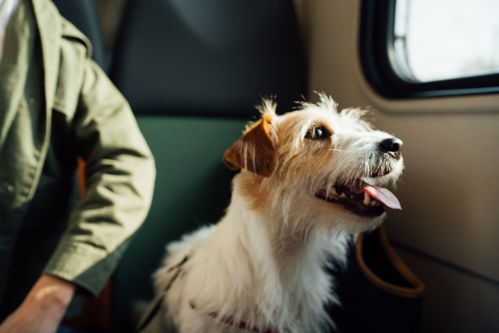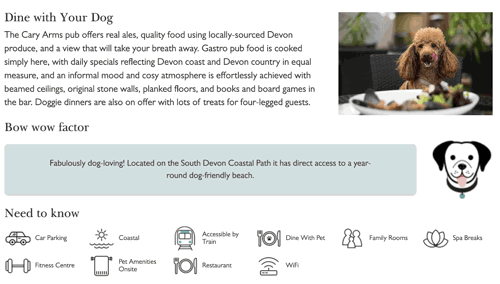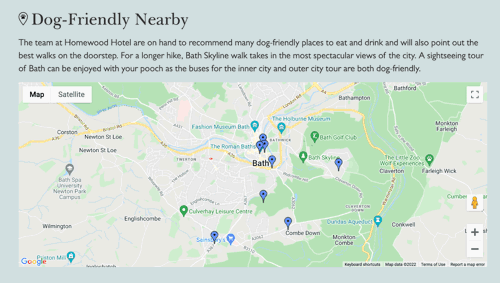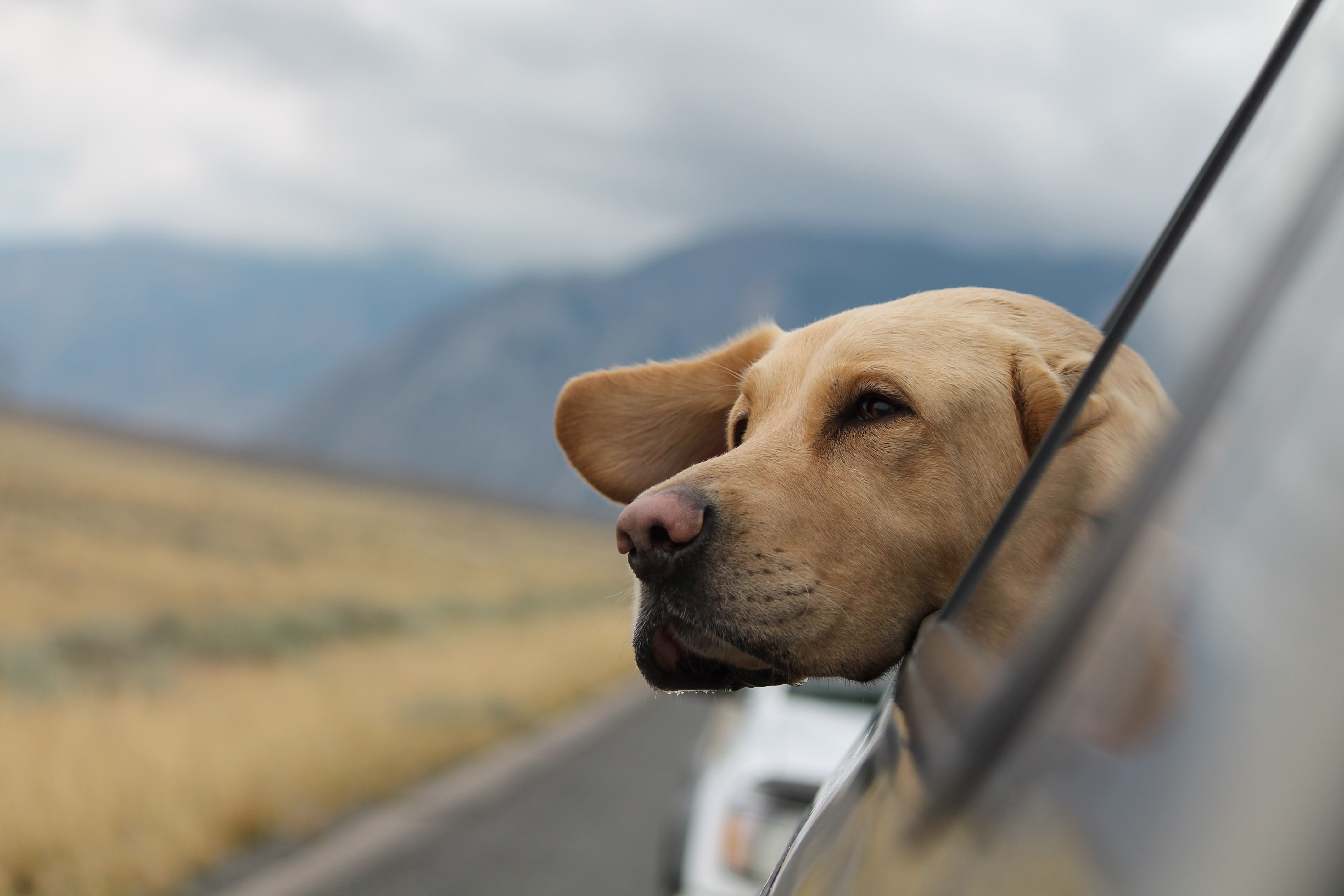We’re a nation obsessed with our pets.
The British Staycation trend is here to stay, and pet-parents continue to look for travel services that are able to cater for their furry companion, and they’re willing to pay for it. Brands that are able to cater to the needs of these travellers can see themselves winning more business and increase the value per customer.
It’s safe to say we’re a nation of pet lovers. They are part of the family - and more people are investing serious time, money and attention in their precious pets’ lifestyle.
3.2 million households in the UK got a pet since the start of the pandemic. That means the country now has 17 million pet-owning homes. This is a huge number, meaning that over half of the population in the UK (59%) cares for at least one beloved animal. 67% see the pet as part of their family - using the affectionate term ‘fur baby’ or calling themselves their ‘mum’ or ‘dad’. We’re seeing a shift in attitude around how we live alongside them, with many putting their pets before their own needs.
We want to involve them in all of the exciting things in life. We’re seeing pets taking the role chief-bridesmaids, shopping companions, and naturally - vacation buddies. Often we class them as our best mates - so why would we leave them out of the best things in life, like our holidays?
The rise of staycationing with our pets
Lockdown certainly brought us closer to our pets - but it also took us far away from the ability to travel further-afield. We spent considerably more time at home, and a great deal more with our pets. So when it finally came to the prospect of heading on holiday, the idea of leaving our pet behind seemed alien. Across the globe, half of us have taken our pets with us on holiday, and 52% of pet owners admit they only stay in pet-friendly accommodation.
With our travel plans altered, UK staycations became a lot more alluring, and the fact that we can travel in the car (with pet - usually dog - sometimes in tow) means we can make the ‘family holiday’ even more meaningful. Rather than being anxious about leaving them behind, more and more of us choose to take our fur babies on holiday with us.
“We’ve seen a rise in people travelling and staying at listings for longer and bringing their pets with them,” said Catherine Powell, Global Head of Hosting at Airbnb.

The number of pet-friendly Airbnb properties in the UK skyrocketed by 95% between 2019 and 2021, bringing the total number of animal-favourable listings to more than 160,000.
Awaze is planning to accomodate more than 250,000 dogs over the next 12 months, with bookings for breaks with pets in 2022 up more than a third compared to the same time in 2019.
Bookings for breaks with pets in 2022 up more than a third compared to the same time in 2019.
More dogs, more money, new business propositions
In the post-pandemic UK, dog ownership has increased amongst Brits, and in line with that, choosing a staycation over a holiday abroad. Experts don't see that demand dropping off any time soon, so it's no surprise that in the majority of cases, the most popular pets people will venture with are dogs!
All of this is a real opportunity for businesses. “Pet-friendly properties generate 28% more bookings and 30% more revenue on average than non-pet-friendly ones, and the market outlook looks incredibly strong.” Many places have jumped to the occasion of creating holidays that revolve around your dog - we now have treehouse escapes, romantic retreats and even pet friendly spa-days.
Pet-friendly properties generate 28% more bookings and 30% more revenue on average than non-pet-friendly ones.
Dog-friendly hotel propositions often miss the mark
When looking at lists of “top pet friendly hotels” like this one, things sound promising, but a closer look at reviews tells a different story. Owners sometimes still question how ‘dog friendly’ the whole experience is.
“Dogs must not go into the bedroom at any point. Dogs must not jump on the sofa. Dogs must not go on the beds. Dogs should not be left unsupervised at ANY point. Dogs must only reside in the kitchen. Dogs must not bark. Dogs must be kept on a lead at all times whilst on-site.”
We asked around in our network for people’s experience around getaways with their pets. Despite booking through Pets Pyjamas - a dog friendly accommodation website - one person told us: “It was only when we were being shown around by the host that they told us that dogs are only allowed in the living room area, not allowed on the sofa - which is not what I expected for a dog-friendly property.”
Rules like these often make us feel like businesses simply want to increase the chances of you staying with them, by not saying no to your fur-baby. In reality, they’re doing the minimum to make your experience pet-acceptable and we feel like our pets become our barriers and new reasons for worry.
Reducing worry for those travelling with pets
Some businesses have expanded their services to meet the growing needs of the pet owner, and make their dogs feel like they’re included in the service considerations. The Cary Arms & Spa in Devon is a good example of showing that your dog is more than just accepted. Dogs are welcomed into the dining experience, along with their own menu offering lots of treats for four-legged guests. There are dog walks directly from the hotel’s front door, and activities nearby that dogs can get involved with.

To increase their guests’ happiness and chances of them rebooking, business owners could ask themselves…
- How might we expand our services and facilities to truly cater to guests travelling with pets?
- How might we increase confidence that our guests’ pets are going to be truly welcomed?
- "How might we?"
Our ‘how might we’ questions turn the opportunity into addressable questions, to spark new ideas. We're sharing them to help you trigger thoughts for how your brand may implement solutions.
Tip: When answering these questions, don’t only think about your existing services, solutions, and revenue streams, but also consider how you might create new ones for this market.
The booking journey for pet owners is disjointed
Planning a trip that is inclusive of our pets often is disjointed. Finding accommodation that is dog friendly is one thing, but travelling with your pet needs more than a place to sleep.
Is there an emergency vet nearby?
Does the local pub accept dogs?
Can I leave my dog in a safe place while I am out paddleboarding? Or better yet, is my dog allowed on the board?

But often this is extra effort - you need to leave the accommodation site, open a new browser window, and start a whole new search specific to dog related activities and compare maps, reviews and do double the amount of planning.
Pet’s Pyjamas have started to touch on this through an interactive map located on all of their accommodation pages.

We can see what dog-friendly services are nearby such as groomers and pet sitters - but this could this go further to answer some of the other worries people might have. Ask yourself...
- How might we tie these services in together to create a homogenous, streamlined and effortless experience?
- How might we ease the information gathering step for people looking to book a pet-friendly experience?
- How might we extend our digital experience to make it easier for people to find out about pet-friendly options?
- How might we show travellers how pet-friendly an area might be?
How businesses can build on this travel trend
With the increase of dog staycations, owners don’t want to travel without their dog, nor do they want to travel with them and leave them in a hotel room. They want their dog to be welcomed just as much as any other visitor, which opens up opportunities for businesses to provide a better experience to their guests.
There’s money to be made here - businesses can charge more when expanding their offering and services in order to accommodate and serve the whole family.
Businesses should ask themselves:
- How might we expand our services and facilities to truly cater to guests travelling with pets?
- How might we increase confidence that our guests’ pets are going to be truly welcomed?
- How might we tie these services in together to create a homogenous, streamlined and effortless experience?
- How might we ease the information gathering step for people looking to book a pet-friendly experience?
- How might we extend our digital experience to make it easier for people to find out about pet-friendly options?
- How might we show travellers how pet-friendly an area might be?
